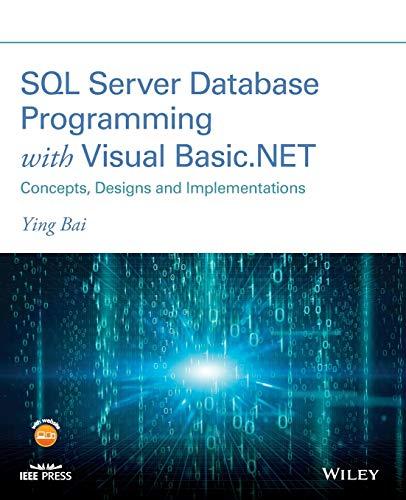Answered step by step
Verified Expert Solution
Question
1 Approved Answer
def nested_list_equal(obj1: Union[int, List], obj2: Union[int, List]) -> bool: Return whether two nested lists are equal, i.e., have the same value. Note: order matters. You
def nested_list_equal(obj1: Union[int, List], obj2: Union[int, List]) -> bool: """Return whether two nested lists are equal, i.e., have the same value. Note: order matters. You should only use == in the base case. Do NOT use it to compare otherwise (as that defeats the purpose of this exercise)! >>> nested_list_equal(17, [1, 2, 3]) False >>> nested_list_equal([1, 2, [1, 2], 4], [1, 2, [1, 2], 4]) True >>> nested_list_equal([1, 2, [1, 2], 4], [4, 2, [2, 1], 3]) False """ # HINT: You'll need to modify the basic pattern to loop over indexes, # so that you can iterate through both obj1 and obj2 in parallel.
Step by Step Solution
There are 3 Steps involved in it
Step: 1

Get Instant Access to Expert-Tailored Solutions
See step-by-step solutions with expert insights and AI powered tools for academic success
Step: 2

Step: 3

Ace Your Homework with AI
Get the answers you need in no time with our AI-driven, step-by-step assistance
Get Started


